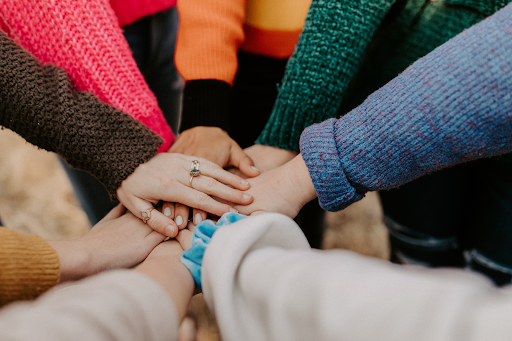Have you ever felt the need to talk to someone, but the thought of opening up to a stranger made you hesitate? Or maybe you’ve longed for a space where you can explore your thoughts and emotions without judgment—individually or among others who truly understand. If that resonates, you're certainly not alone.
As a psychologist offering both individual and group therapy, I’ve witnessed the power of connection in every setting. Both formats have their own unique strengths—and the choice between them depends on what feels most aligned with your needs.
And then there’s group therapy—an often-overlooked gem. Group sessions have a unique magic. They remind us that we’re not alone in our struggles. In a circle of shared stories, you may find your voice, your reflection, and even your strength. Watching others grow can be deeply motivating. Sometimes, someone else’s story holds the mirror you didn’t know you needed.

Group or Individual: Which One Is Right for You?
Individual Therapy offers a private, personalized space for deep reflection and healing. If you’re navigating trauma, grief, or complex emotions, one-on-one sessions allow for a tailored pace and focus.
Group Therapy, on the other hand, is a space of shared humanity. You learn that your struggles aren’t so unique—and that’s comforting. The feedback, shared laughter, and moments of resonance help build new interpersonal skills and perspectives. It’s social healing in action.
Some of my clients choose both. They work through specific issues individually and complement that growth with the richness of group support. You don’t have to choose one or the other—you can find balance in both.

The Perks: Why Flexible Therapy Might Be Exactly What You Need
- Comfort and Structure: Therapy doesn’t require a grand gesture—just the willingness to show up. Whether in a calm one-on-one session or a dynamic group space, each format invites healing in its own way.
- Supportive Community: Group therapy builds a healing community. When we feel heard and seen by others who understand, our nervous systems begin to trust and soften.
- Personal Attention: In individual sessions, we focus exclusively on your journey—your past, your patterns, your potential.
- A Gentle Start: For some, starting in a group feels like a soft entry into therapy. For others, one-on-one offers the comfort of privacy. Either way, there's a place for you.
When In-Person Therapy Matters Most
There are times when being in the same room—sharing the energy, the space, the stillness—can be profoundly grounding. For those dealing with complex trauma or seeking somatic-based therapy, face-to-face sessions offer a depth of connection that transcends words.
Whether it’s one-on-one or in a group, my goal is to support your growth, healing, and self-discovery. The format doesn’t matter as much as the willingness to take that first step.
A Personal Note
Some of my clients have shared that their biggest breakthroughs happened in group—realizing they weren’t alone, being moved by someone else’s courage. Others have valued the intimacy of our individual work—the focused space to process, cry, reflect, and evolve. And some have experienced the best of both worlds.
Whatever your preference, my mission remains the same: to create a space where you feel heard, seen, and supported.
So—could therapy support you right now? Could it offer you space to explore, heal, and grow? Whether you feel more drawn to a group, prefer a one-on-one approach, or want to explore both—I’d love to walk that journey with you.
What if healing didn’t have to start with a big step—but a small one inward?
Let’s begin—together.
Written by Alice Bertoldo, Fung Tsoi Lam Christel and Amanda Prudencio Rebeschini

